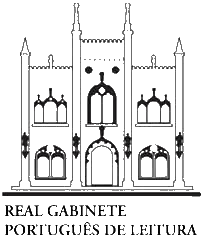As masculinidades na encruzilhada histórica de Luanda, Lisboa, Paraíso
DOI:
https://doi.org/10.37508/rcl.2024.n52a1308Palavras-chave:
Masculinidades, Colonialismo, Fascismo, Literatura Portuguesa ContemporâneaResumo
Este ensaio busca contextualizar a ebulição histórica da década de 1980, recorte temporal em que se passa a maior parte da narrativa de Djaimilia Pereira de Almeida, Luanda, Lisboa, Paraíso (2019). Considerando a ocorrência concomitante de alguns eventos históricos – a colonização, o regime salazarista português e as guerras coloniais de libertação dos países africanos –, intenta-se traçar algumas observações acerca das masculinidades vigentes nesse período, bem como dos seus paradigmas e subversões, alocando as personagens do romance, nomeadamente Cartola e Aquiles. Para tanto, recorre-se aos estudos de Rosas (2001), a fim de perspectivar o Estado Novo português; de Lugarinho (2017), que traça a aparição das masculinidades em algumas produções literárias dos PALOPs; e de Stanley (2019), cujo trabalho permite estabelecer parâmetros entre os regimes fascistas globais e a ditadura de Salazar, em Portugal. Evocam-se outros estudos para a elaboração deste trabalho, mas os já citados são basilares porquanto permitem colocar em perspectiva a construção das personagens principais do romance de Djaimilia Pereira de Almeida.
Downloads
Referências
ALMEIDA, Djaimilia Pereira. Esse cabelo: a tragicomédia de um cabelo crespo que cruza fronteiras. Rio de Janeiro: Leya, 2017.
ALMEIDA, Djaimilia Pereira. Luanda, Lisboa, Paraíso. São Paulo: Companhia das Letras, 2019.
GABRIEL, Ruan de Sousa. Finalista do Oceanos, escritora portuguesa se inspira em Cartola, O Globo, Rio de Janeiro, p. 6, 5 dez. 2019. Segundo Caderno.
GRUZINSKI, Serge. O pensamento mestiço. Tradução de Rosa Freire d’Aguiar. São Paulo: Companhia das Letras, 2001.
JORGE, Silvio Renato. Literatura, memória e resistência. Diadorim, Rio de Janeiro, v. 1, n. 19, p. 19-29, jan.-jun. 2017. DOI: https://doi.org/10.35520/diadorim.2017.v19n1a13019
LIMA, Norma Sueli Rosa. “Esse cabelo” em “Luanda, Lisboa, Paraíso”: Djaimilia Pereira de Almeira e a experiência do desenraizamento na tentativa de integração. Convergência Lusíada, Rio de Janeiro, v. 31, n. 43, p. 12-24, jan.-jun. 2020. DOI: https://doi.org/10.37508/rcl.2020.n43a375
LUGARINHO, Mário César. Paradigmas confrontados: algumas masculinidades nas literaturas africanas de língua portuguesa. Metamorfoses, Rio de Janeiro, v. 14, n. 1, p. 141-151, 2017. DOI: https://doi.org/10.35520/metamorfoses.2017.v14n1a10553
O MUNDO é um moinho. Intérprete: Cartola. Compositor: Cartola. In: CARTOLA. Intérprete: Cartola. Rio de Janeiro: Discos Marcus Pereira. 1976. 1 disco de vinil de 7 polegadas, lado A, faixa 1.
ROSAS, Fernando. O salazarismo e o homem novo: ensaio sobre o estado novo e a questão do totalitarismo. Análise social, Lisboa, v. 35, n. 157, p. 1031-1054, 2001.
STANLEY, Jason. Como funciona o fascismo: a política do “nós” e “eles”. Tradução de Bruno Alexander. Porto Alegre: L&PM, 2019.
VECCHI, Roberto. Legados das memórias da Guerra Colonial: algumas reflexões conceituais sobre a transmissão intergeracional do trauma. Abril, Niterói, v. 5, n. 11, p. 15-23, nov. 2013. DOI: https://doi.org/10.22409/abriluff.v5i11.29659
Downloads
Publicado
Como Citar
Edição
Seção
Licença
Os autores que publicam nesta revista concordam com os seguintes termos:
a. Autores mantêm os direitos autorais e concedem à revista o direito de primeira publicação, com o trabalho simultaneamente licenciado sob a Licença Creative Commons Atribuição NãoComercial (CC-BY-NC 4.0) que permite o compartilhamento do trabalho com reconhecimento da autoria e publicação inicial nesta revista.
b. Autores têm autorização para assumir contratos adicionais separadamente, para distribuição não-exclusiva da versão do trabalho publicada nesta revista (ex.: publicar em repositório institucional ou como capítulo de livro), com reconhecimento de autoria e publicação inicial nesta revista.
c. Autores têm permissão e são estimulados a publicar e distribuir seu trabalho online (ex.: em repositórios institucionais ou na sua página pessoal) a qualquer ponto antes ou durante o processo editorial, já que isso pode gerar alterações produtivas, bem como aumentar o impacto e a citação do trabalho publicado.

A Revista Convergência Lusíada utiliza uma Licença Creative Commons - Atribuição-NãoComercial 4.0 Internacional.









